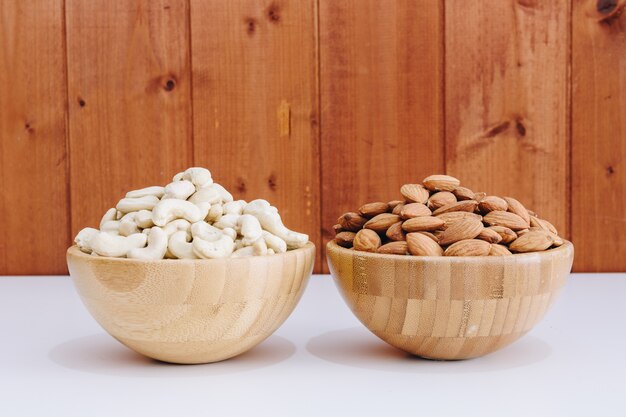


Thus, it would be worthwhile to consider the potential interactions between the essential nutrients (including amino acids, fatty acids, minerals, and vitamins), fiber, and phytochemicals (including carotenoids, phytosterols, and polyphenols like flavonoids and stilbenes) most commonly present in tree nuts. 11 As the nutrient composition of different tree nuts can vary markedly, there is unlikely to be a single or even a few constituents that contribute principally to these outcomes. 9 Evidence for this relationship has been sufficiently compelling that nuts have been incorporated into recommended dietary guidelines in the United States, Canada, and Spain 10 and a qualified health claim for reducing the risk of heart disease is allowed by the U.S. Tree nuts appear to have an impact on antioxidant status 1, 2 and inflammatory pathways 3, 4 that may underlie, in part, their putative benefits in reducing the risk of cardiovascular disease, 5, 6 type 2 diabetes, 7, 8 and some types of cancer. A limited number of human studies indicate these nut phytochemicals are bioaccessible and bioavailable and have antioxidant actions in vivo. Phenolic acids are present in tree nuts but a systematic survey of the content and profile of these compounds is lacking. In contrast, most tree nuts are not good dietary sources of carotenoids and stilbenes.

Tree nuts are a rich source of tocopherols and total phenols and contain a wide variety of flavonoids and proanthocyanidins. This review summarizes the current knowledge of the carotenoid, phenolic, and tocopherol content of tree nuts and associated studies of their antioxidant actions in vitro and in human studies. These phytochemicals have been shown to possess a range of bioactivity, including antioxidant, antiproliferative, anti-inflammatory, antiviral, and hypocholesterolemic properties. Although many of these constituents remain to be fully identified and characterized, broad classes include the carotenoids, hydrolyzable tannins, lignans, naphthoquinones, phenolic acids, phytosterols, polyphenols, and tocopherols. In addition to being a rich source of several essential vitamins and minerals, mono- and polyunsaturated fatty acids, and fiber, most tree nuts provide an array of phytochemicals that may contribute to the health benefits attributed to this whole food.


 0 kommentar(er)
0 kommentar(er)
